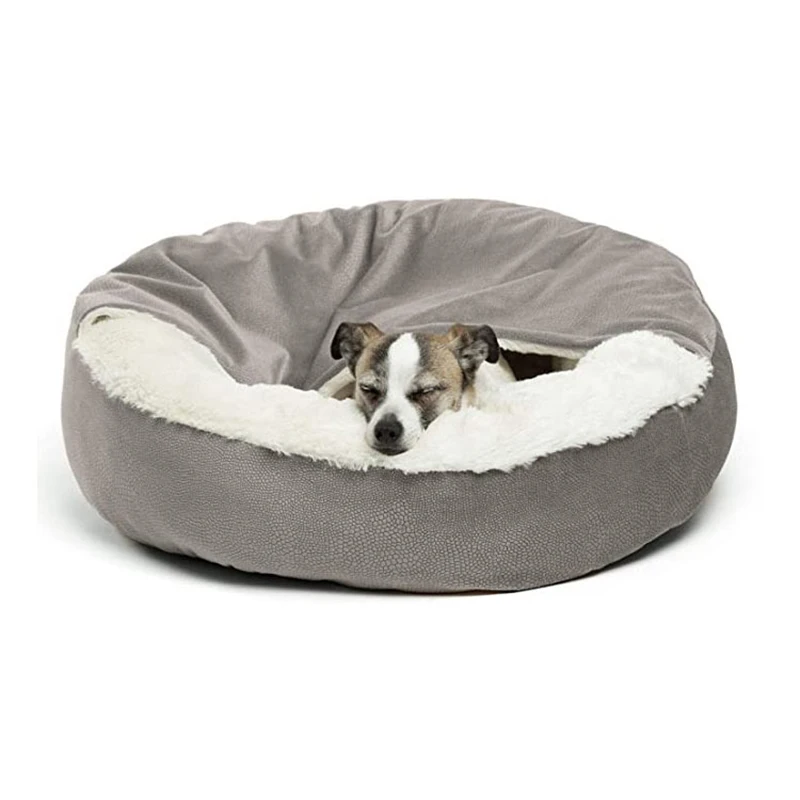Introduction
Dogs are fascinating creatures with a range of behaviors that often puzzle their owners. One behavior that many dog owners notice is their pet licking their bed. This can raise several questions: Why does my dog lick his bed? Is it normal? What does it mean? In this article, we will explore the various reasons behind this licking behavior and what it signifies. We’ll also provide tips on how to address it if necessary.

Reasons Behind Licking Behavior
Comfort and Security
One of the main reasons your dog may lick his bed is for comfort and security. Much like humans might fidget or perform rituals when nervous or restless, dogs can exhibit similar behaviors. When dogs lick their beds, they often create a calming effect for themselves. The repetitive motion of licking can be soothing, especially in new or stressful situations.
When a dog feels anxious, he may seek out familiar scents. The bed often has the smell of his owner and other household odors. Licking this familiar scent can bring reassurance to your dog. It creates a sense of home and safety. This can be particularly evident when a dog is in an unfamiliar environment, such as traveling or staying with friends.
Natural Instincts
Licking is a natural instinct for dogs. In the wild, dogs often lick their surroundings. They may lick their den to make it smell more like home or to stimulate their senses. In this way, your dog’s bed licking may be rooted in his instincts, showcasing behaviors that he has inherited from his ancestors.
Dogs lick to explore their world. Their mouths are highly sensitive and help them discover different textures, tastes, and smells. Licking can also serve to investigate or “clean” their sleeping area. This behavior allows your dog to personalize his space, making it feel more secure.
Behavioral Issues or Anxiety
Sometimes, excessive licking may indicate a problem. Behavioral issues can stem from anxiety, stress, or boredom. If your dog is licking his bed excessively, it may be a sign of underlying anxiety disorders. Separation anxiety is common in dogs and can lead to excessive licking and other compulsive behaviors.
If you notice frequent licking alongside other symptoms such as pacing, whining, or destructive behavior, consult your veterinarian. They can rule out medical issues and help you determine if anxiety is a factor. Behavioral therapy may also be helpful.

The Impact of Licking on Your Dog’s Health
Skin Irritation or Damage
Excessive licking can lead to skin irritation or even injuries. When a dog licks the same area repeatedly, it can create sore spots or skin infections. This can result in unnecessary pain for your pet. Keep an eye on the areas your dog licks most often. If you notice any changes, contact your vet for guidance.
In some cases, dogs may lick their beds to transfer allergens or irritants. If your dog’s bed is not cleaned regularly, dust mites or pollen may accumulate in the fabric. When the dog licks the bed, these allergens can transfer to his skin, causing irritation. Always maintain a clean living environment for your dog.
Dental Health
While licking the bed may seem harmless, it can contribute to dental problems. Dogs often lick to explore, and this may lead them to pick up bacteria from their sleeping area. Over time, bacteria can lead to plaque buildup and other dental issues. Regular veterinary dental check-ups are essential to prevent these complications.
To minimize risks, consider providing your dog with toys specifically designed for chewing. These can satisfy his natural instincts without the risk associated with licking his bed.
Addressing Excessive Licking Behavior
Providing Alternatives
If you are concerned about your dog licking his bed excessively, it’s essential to provide alternatives. Interactive toys can redirect your dog’s energy and focus. Puzzle toys or treats can encourage engagement and mental stimulation. These alternatives can keep your dog entertained and reduce the urge to lick his bed.
Consider creating a more significant sleeping area or station where your dog feels secure. Add familiar blankets, toys, or even your old clothing. This enhances comfort and can divert attention away from licking.
Creating a Calm Environment
Creating a peaceful and calm living environment is also crucial. If your dog experiences anxiety, a soothing atmosphere can help mitigate licking behaviors. Use calming aids such as aromatherapy or music designed for pets. These approaches can create a serene space for your dog.
You may also want to establish a routine. Dogs thrive on predictability. A consistent schedule for walks, meals, and playtime can promote a sense of security and reduce anxiety levels.
The Role of Breed and Personality
Breed-Specific Behaviors
Certain dog breeds may be more prone to licking behavior than others. Breeds that have strong herding or guarding instincts may demonstrate more repetitive behaviors. These dogs may lick as a way to cope with their instincts or feelings of unease. Understanding the tendencies of your dog’s breed can give you better insight into his behaviors.
For example, border collies and other herding breeds may need more stimulation than other breeds. If these dogs don’t receive enough exercise or mental challenges, they might resort to repetitive actions, like licking, to cope with boredom. Knowing your breed’s characteristics can equip you with tools to address and manage licking.
Individual Personality Traits
Just like humans, each dog has an individual personality that can affect their behavior. Some dogs are naturally more anxious, while others may be more laid-back. A dog’s personality can dictate how they react to environmental stressors or changes. An anxious dog may lick his bed as a way to cope with stress, whereas a calmer dog may engage in lower levels of licking.
Understanding your dog’s unique personality can pave the way for more effective management. Recognizing triggers that elicit licking behavior can help you adjust the environment or provide the necessary comforts. Ensure that you are considering his personality when addressing the licking.
Implementing Behavioral Changes
Consistency is Key
If you want to curb your dog’s licking behavior, consistency is essential. Whether you are working on providing more stimulation or redirecting his attention, be sure to follow through. Similar to training, dogs learn better when they see consistent reactions and boundaries. Their behavior often reflects their understanding or misunderstanding of your expectations.
Establishing a routine can help your dog feel more secure. This routine can include regular feeding times, walks, and play sessions. Predictability allows your dog to feel more comfortable in his environment, which may help reduce his urge to lick his bed as a coping mechanism for anxiety.

Monitor Progress
Keep an eye on your dog’s licking habits. Notice when and where the licking occurs. If you have identified triggers, you can work to reduce their presence in your dog’s life. Over time, you’ll be able to observe whether your interventions are successful in reducing the licking behavior.
You might want to keep a log of behaviors, noting any changes and improvements. Regularly reviewing your dog’s behavior can help you and any trainers or veterinarians identify what works and what doesn’t. Patience is essential, as behavior modification takes time.
Conclusion: Understanding and Responding to Your Dog’s Needs
In conclusion, while licking a dog’s bed is often natural, it can have multiple causes. From instinctual behavior to comfort seeking and anxiety, various factors may contribute to this action. It’s vital to observe your dog’s behavior and determine if the licking is excessive or accompanied by signs of distress.
Regular veterinary visits and proper care can ensure your dog remains healthy. If licking becomes excessive, consider implementing changes to your pet’s environment or routine. Always consult with your veterinarian to rule out health issues and explore possible behavioral therapies.
Each dog is unique, and understanding their needs will enable you to provide the best care possible. A happier, healthier dog leads to a stronger bond between you and your furry companion.
With a little knowledge, patience, and understanding, you can help your dog feel secure and content, reducing the likelihood of excessive bed licking and promoting overall well-being.
